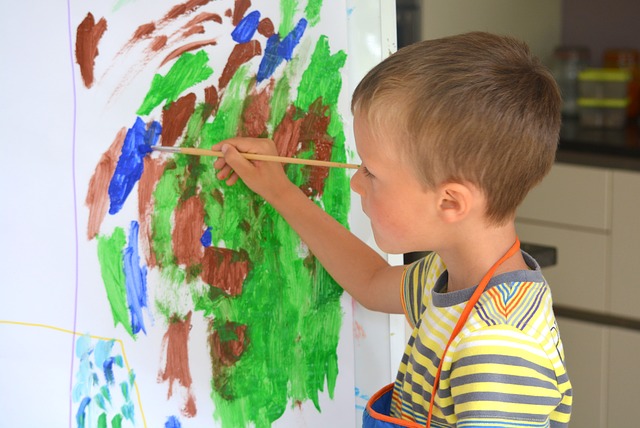Many parents worry that the children will not socialize or read, but should realize that the strengths of their children will lie elsewhere. Every child can not be a scholar; kids would be fantastic at performing arts, fine arts, or even sports. The earlier the parents understand this and accept it, the easier it is for them to accept their child. Studies show that you are more peaceful and happy with your strengths in everyday life. Read on for the ways to discover your child’s strength.
Each of us has unique talents and abilities to born. Your own set of strengths may differ from your partner’s or siblings’. Your child has its own strengths, as well. They are still focusing on the weaknesses of our kids, rather than its strengths. If you continue to cultivate his talents and abilities throughout his formative years they will be growing up a happy child, here’s how:
How To Discover your Child’s Strength?
Traditionally, the parents appear to focus more on their children’s weaknesses. Others go a step further, taunting them for their ‘ineptitude’ and insulting them before their peers and others. Not performing well in school is not a sign of life disappointment and vice-versa. And if we look at our own families, we see that our brothers and sisters are undoubtedly good at different things and that this has not rendered them anyone less successful in life. You need to recognize the strengths of our child as early as possible as parents and seek to make the most of those strengths. Continue reading to know how to discover your child’s strength.
1. Figure out what’s making your kid special
Small anomalies may be an indicator of strengths. Something as basic as the propensity of a child to insist that his mother use a certain purse over another one will indicate confidence in something as unrelated as design. What might initially look like “show-off” may be an early indication of a child having the power to entertain? The most unusual things sometimes signal the areas with the deepest strength.

Image Source- Pixabay
2. Listen to children
They are more aware of their abilities than anyone. To listen effectively you need to
Ask a whole lot of questions. Evite questions that are answerable with a simple yes or no.
Tell your child that you care for his viewpoint. For every reply you get
Accept, follow up with another question; “Why do you think so?”
Listen to your child and think about what you believe you heard him say. If a child says he doesn’t want to play football anymore, instead of asking him why, say, I hear you say that soccer doesn’t interest you anymore, can you tell me why?

Image Source – Pixabay
3. Do not compare kids to their siblings
The willingness of kids to discover their strengths is no more hindered than when they feel continually compared to their flawless siblings. Every child is going to be special, and different. The variations are reasons for celebration, not similarities that could make them feel insufficiently fine. You can see your kid’s discrepancies in their lives early on. The more that you enjoy, the better.
4. Maintain a list of strengths
Note the things that your child does — something that surprises you about his / her behavior. Many of the questions that will guide you are here:
- What motivates your child to express happiness and joy?
- What are the things that will keep his attention for the longest time?
- Are there more than others sounds or phrases he is responding to?
- What’s his first thing in the morning and what’s his last thing at night?
- Is he very generous? How does he demonstrate that?
- Is he friendly? He’s cautious or funny? Give some examples.
5. Create traditions of the family
Creating family traditions helps children discover the strengths of their relationships. The attributes in relationships are the things that you do and that you are proud of other people. To understand this, children need to think about their experiences with others and remember the ones they feel most good. Family traditions are giving children positive memories. If for instance the birthday kid is a king or queen for a day and you do the same kind of good stuff regularly — like allowing them to pick their favorite meal — children are going to remember that later on in life and want to do it better for others. If you establish rituals in which children are actively interested in making value for others, it will be easier in life to understand what leads them to believe like they are good at contributing to others.
6. Play, and develop the imagination
Children will unleash and exercise their power during imaginative play. See kids play and you’ll hear a lot about what they want, how they’re socializing, and the special ways they see themselves. Play encourages the stimulation of cognitive and emotional development.
7. Avoid the desire to judge everything, and exaggerate expectations
While most parents want their kids to excel, they also unnecessarily stress kids by judging everything they do. When your kid shows you a picture she drew, ask her what they like best in painting instead of saying it is good. Over-evaluation, whether negative or optimistic, makes kids worry about how well they’re doing, and this hampers their risk-taking potential.
Kids must feel like they can try many things, and it’s OK to struggle and even a part of the process to find out what they really want to do. Expectations are unreasonably high and often compel children to comply with the rules specifically defined and discourage experiments, explorations, and inventions. Kids like adults and often they do to gain approval or satisfy their desires instead of whether they genuinely enjoy the task.
8. Help children discover strength and interest
Strengths are children’s optimistic emotions as they do various activities. Value is where their abilities are implemented. For example, a child may be attracted to animals and thus an interest in animals may be mentioned. But one child may like to take care of animals while another child may like to practice. The power is caring for one child and teaching for the other.
Power is what someone wants to do, while they want to do it. It is necessary to shift power to other interests. For example, children may also like to teach children if they like to train animals. When you help children discover their strengths and desires, they have a strong opportunity to grow a true passion.
So, these are 8 ways to discover your child’s strength.
Building on the strengths of our child does not mean that we disregard his weakness and encourage him to go all day long. Education is a vital part of his life and we can not ignore it. We need to combine academics and extracurricular activities in order for him to stand out in his life.
Also Read: Why Yelling At Your Kids Is Not A Good Idea?













